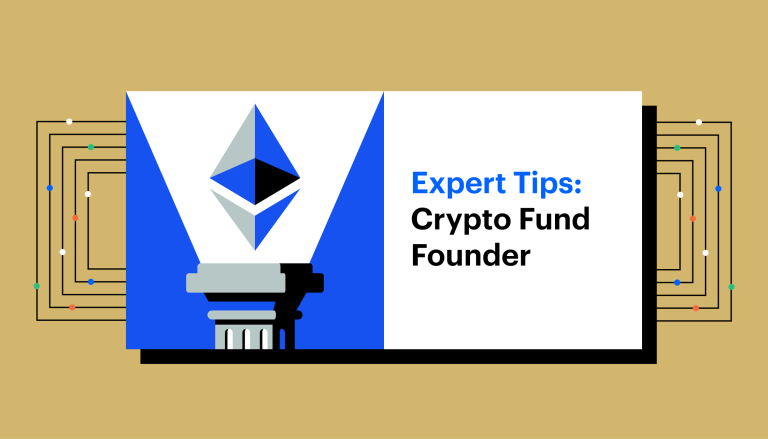Expert tips: a crypto-fund founder

We asked crypto influencers, veteran traders, VC fund founders, and more to share their top tips, essential Twitter follows, and the stories behind their best trades ever. In this article, we speak to Scalar Capital founder – and former Coinbase product manager – Linda Xie.
When you ask crypto experts for a list of the smartest and most clear-eyed people in the space, venture-fund founder Linda Xie is a name that comes up more than just about anyone. Xie (pronounced “shay”) became interested in Bitcoin in college, but it wasn’t until Overstock.com began accepting it as payment in 2014 that she felt optimistic enough about the future of digital money to leave a finance job. She took a role as one of Coinbase’s first thirty employees and eventually rose to become a product manager focused on regulations and compliance. Since 2017, she’s led the crypto investment management firm Scalar Capital, which focuses on cryptoasset startups . “We’re very long-term oriented,” she says. “So we like to get really involved and help out founders and participate in communities.”
Understand your options
It can be hard for beginners to know where to start with crypto. In addition to the obvious starting point of Bitcoin, Xie suggests looking at the opportunities that Ethereum offers. “We’re seeing significant amounts of capital there,” she says. “So I think it's worth looking at Ethereum and its ecosystem seriously.”
Dig into Ethereum
According to Xie, one big reason to be optimistic about Ethereum is because it’s the main technology that underpins the booming world of DeFi (decentralized finance): “What’s getting traction? What are people willing to pay fees for? What's driving volume? Where's the developer activity?“
Don’t sweat timing too much
When prices are rising fast, it’s natural to feel like you missed out if you didn’t buy earlier. Xie says not to sweat timing too much, especially if you’re buying with long-term holding in mind. “If you’re looking at an asset and saying, 'It's early and this is actually where I strongly believe it could be headed,’ it’s not as important to time the price exactly," she says. "It could make sense to dollar-cost average into a purchase with an amount you are comfortable losing. Because if you zoom out into the long-term perspective, a lot of these are still in the early days."
Start small
Xie’s first rule for anyone new to crypto is to only invest what you can afford to lose. Especially when it comes to DeFi — which is hard to understand without trying and is best left to more experienced traders. Even then, she suggests taking it slow and starting with the biggest, most established protocols: “Maybe just play around with small amounts of capital on [the decentralized lending and borrowing protocol] Compound, lending out some of your crypto and earning yields. Or exchange some small amounts on a decentralized exchange. But I really want to emphasize that I've known people that have gotten burned in DeFi – it’s very risky.”
Linda Xie's favorite trades
Xie was “really deep” into Bitcoin when Ethereum came along in 2015. She recalls a lot of skepticism at the time, but she was convinced that it had major potential – so she took a bet on it that worked out well. “When I invest, I’m looking for things that are very different than what already exists," she says. "I'm not interested in simple copycats. Ethereum was just the first thing that came along after Bitcoin that I felt really pushed things forward.”
Go to the source
Because the crypto world is so new, you can usually dig up a wealth of information that the team behind (or community around) many projects have written themselves on Medium or Twitter. “And you should join the Discord or Telegram group or whatever they use to manage the community,” Xie adds. “It can be great to really get in the weeds and understand the project and the community.”
Look for trends
Some of Xie’s favorite sources of info, especially about DeFi projects, are EthHub, the Defiant, Coin Metrics, and DeFi Pulse. She also reads a newsletter called Our Network by Spencer Noon, another investor in the space. “When I see a lot of people I respect talking about something, it's definitely worth looking at,” she says. “It doesn't necessarily mean it's a good investment, but it’s a strong indication that I need to at least understand what a thing is.”
Give crypto to friends and family
Xie has been giving crypto as birthday presents for years, but she recently started gifting Bitcoin and Ethereum to friends’ kids and asking their parents to hold onto it until they’re old enough to use it. “By then, in my opinion, it should be worth a substantial amount,” she says. “But part of what’s cool about this idea is just getting to see what happens when people hold crypto for such long periods of time.”